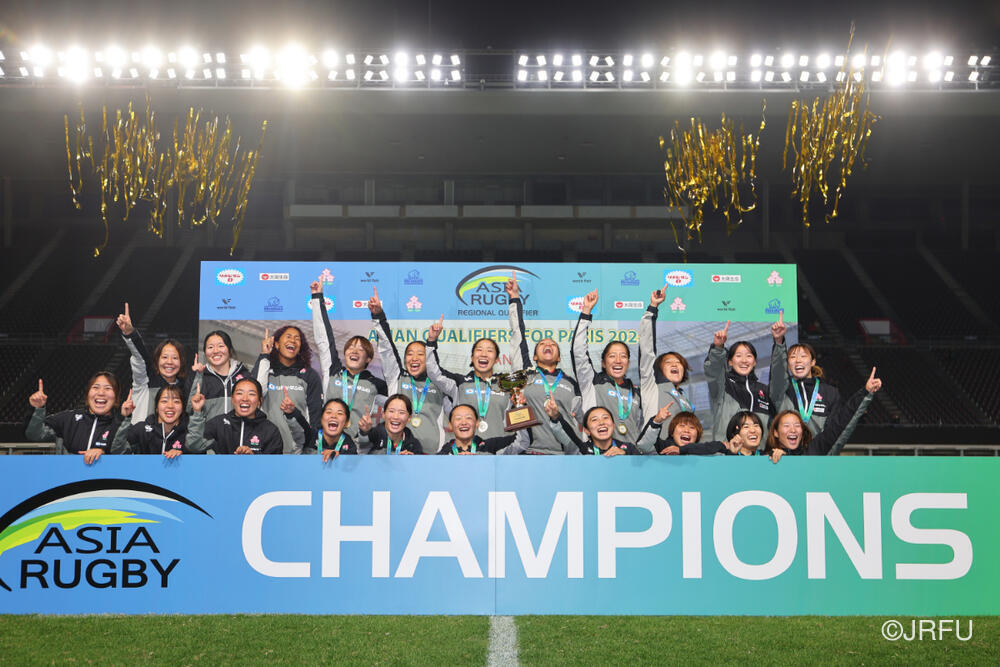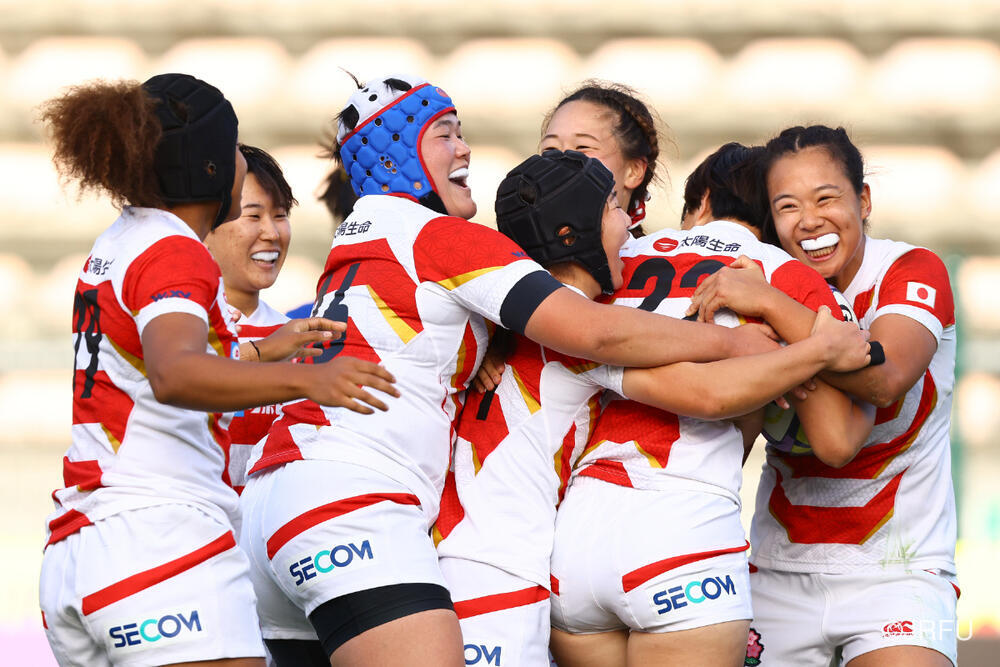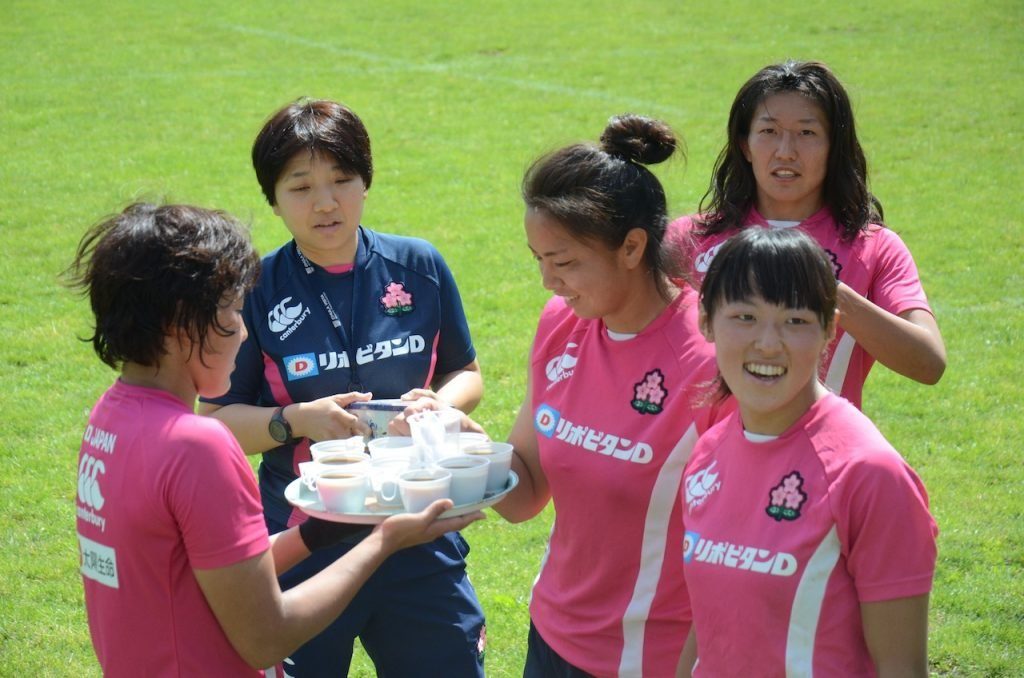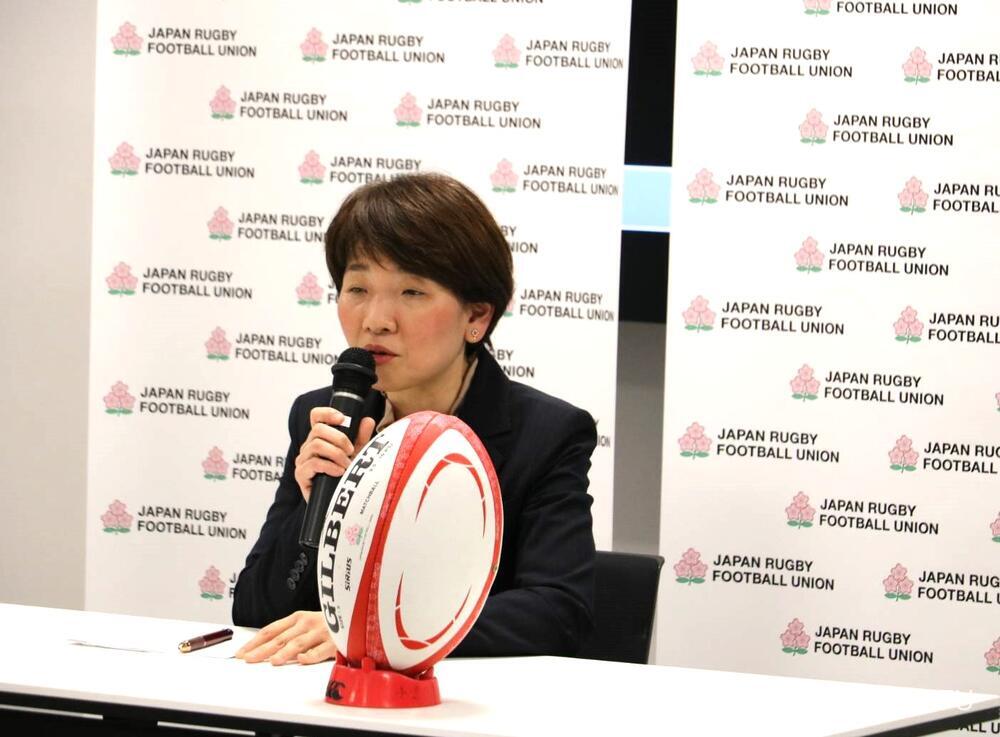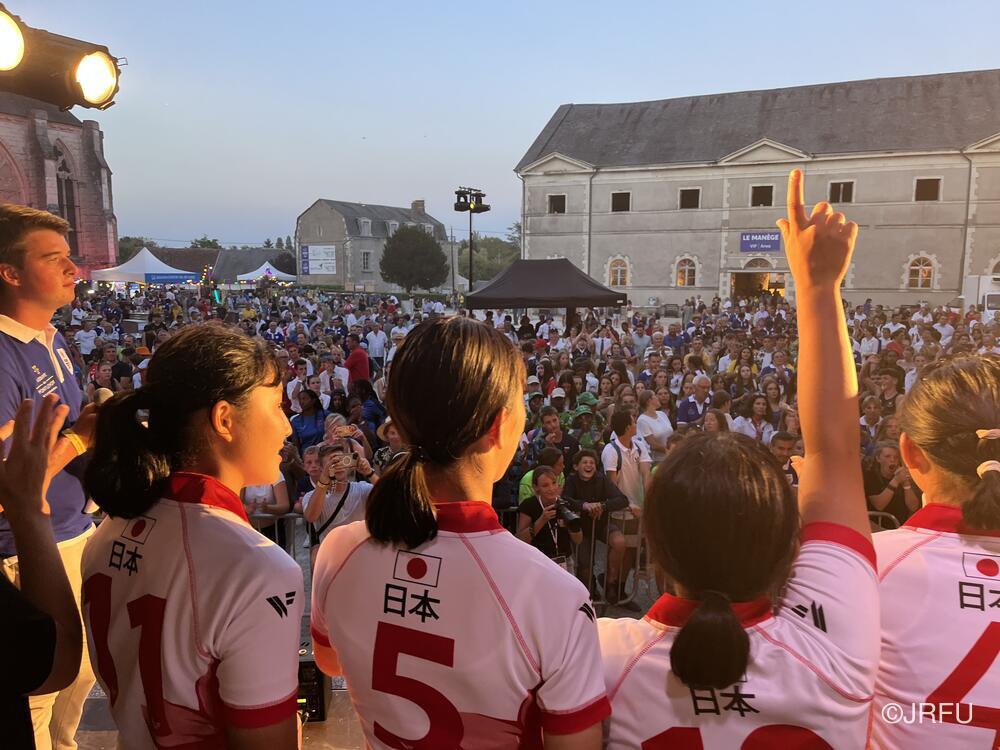
Passion, Focus, and Investment Drives Japanese Women’s Rugby to New Heights
2023 has been an historic year for Japanese women’s rugby, marked by significant achievements for both the Sakura Sevens and Sakura Fifteen. In November, the Sakura Sevens secured their place at the Paris 2024 Olympics, while the Sakura Fifteen concluded the year with an impressive 78% win-rate, winning seven out of nine test matches and boasting a +101 positive points difference.
These accomplishments are fair reward for the dedication and investment the JRFU and its partners have committed to developing and nurturing the women’s game across all levels. This includes the appointment in April this year of Akane Kagawa, the JRFU’s first Director of Women’s Rugby. Kagawa, a 23-year veteran of the JRFU came into the role with the express mission of developing the women’s game from the grassroots level, all the way up to the national teams in both fifteens and sevens.
Having grown up in a rugby family, Kagawa has always had a passion for the sport. “I grew up watching rugby from a young age and would often attend matches with my father in the eighties and nighties when like today, rugby was extremely popular in Japan. After graduating from University, I worked for various companies but always had a dream to one day work in rugby. In 2000 my opportunity came when I joined the JRFU in the accounting department, before moving into roles in community and grassroots rugby development. In 2010 I started my 11-year stint as Team Manager of the Sakura Sevens.
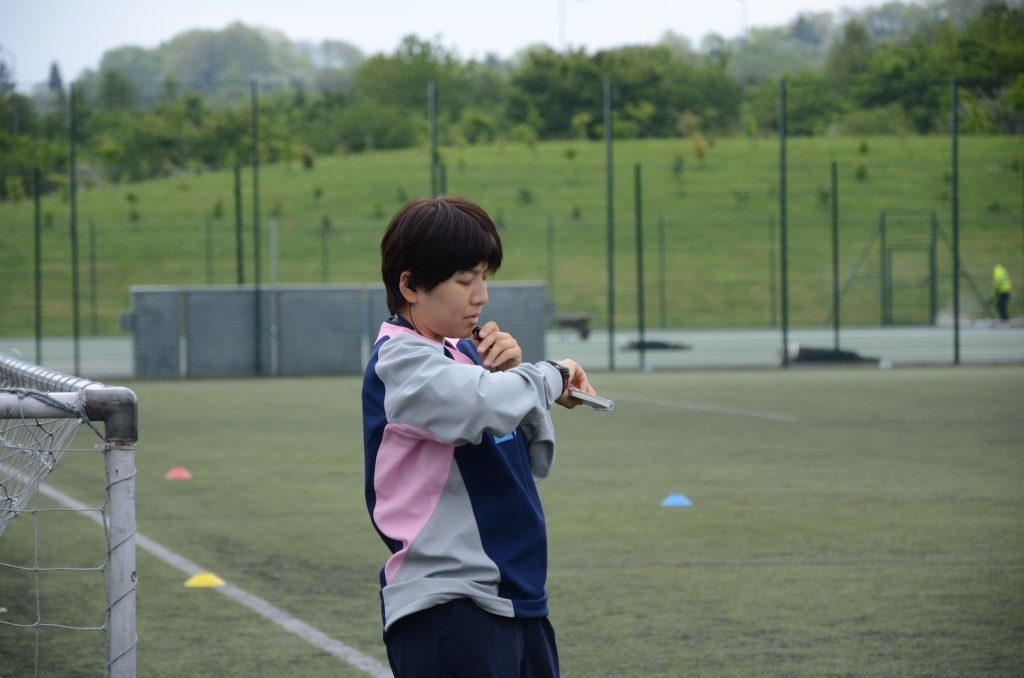
“The role not only got me closer to the players, it allowed me to travel extensively and get an appreciation of how big and diverse the rugby world is, but also how united it is in its common values. I also saw first-hand how powerful rugby is as a sport for developing young women into strong and independent leaders and team players.”
In 2021, Kagawa took a break from the JRFU, moving to Ireland to undertake an MBA at University College Dublin. Upon her return she took up her current position. Putting her MBA experience to immediate use, she led the development of the JRFU’s Women’s Rugby Mid-to-Long-Term Strategic Plan, aligning it with World Rugby’s ‘Women in Rugby’ Strategic Plan 2021-2025 and the overarching ‘JAPAN RUGBY 2050’ long-term strategic plan.
The strategic plan encompasses three pillars – the development of sustainable pathways, the development and nurturing of the women’s rugby community and leadership development.
“The JRFU leadership had already committed to developing the women’s game, but the pivotal change came following last year’s World Cup and with the introduction this year of the WXV. Those two tournaments, along with our improved results on the international stage have significantly increased the attention given to women’s rugby throughout the JRFU.”
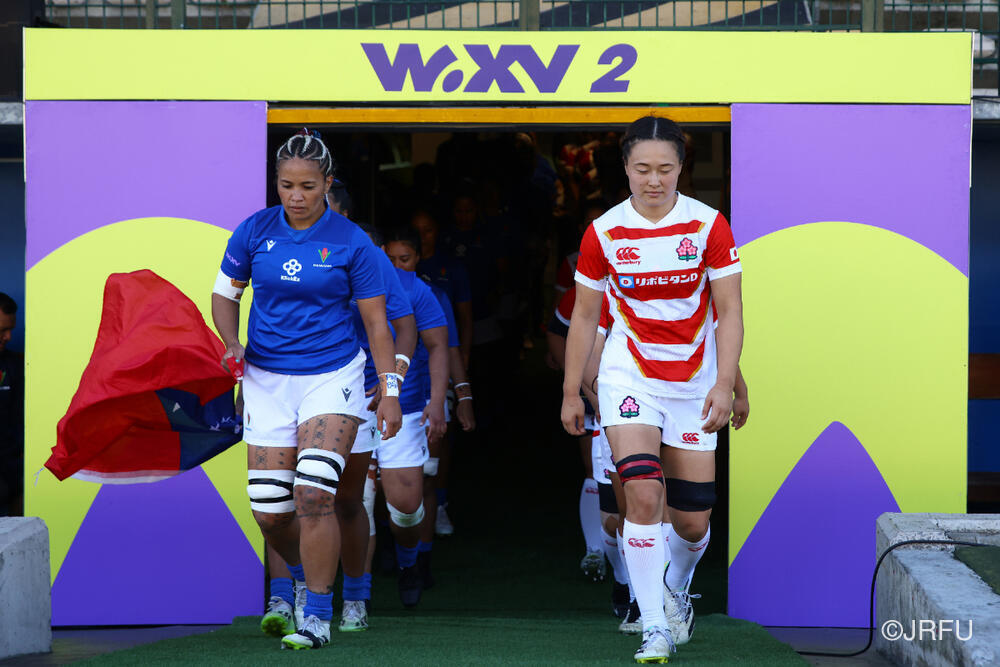
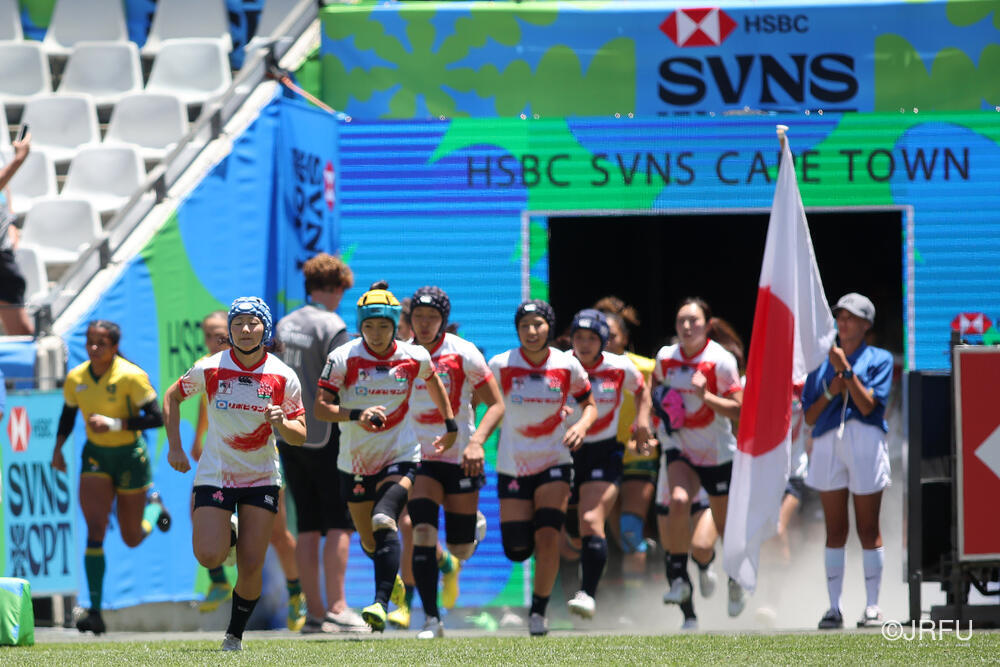
Following rugby’s inclusion as an Olympic sport, sevens has become very popular and it’s the format via which most girls are introduced to rugby. It’s resulted in growing the number of players from around 2,000 twenty years ago, to more than 5,000 today. “Our challenge isn’t so much about growing our player base, it more an issue of retention. It’s about how we keep girls playing rugby once they graduate from high-school and university. This is really the key driver of our strategic plan and why its success is so important to the overall success of growing rugby in Japan.
“Another major challenge is how we balance sevens and fifteens in domestic competitions. Sevens is still core as it’s our main driver to grow our player base, but at the same time, if we want to be stronger in fifteens, we need to produce strong forwards who regularly play fifteens. Developing a strong domestic fifteens competition is also impeded by the big differences across our regions. While around Tokyo, fifteens is relatively strong, there are less teams that can field viable sides in Kansai and Kyushu.
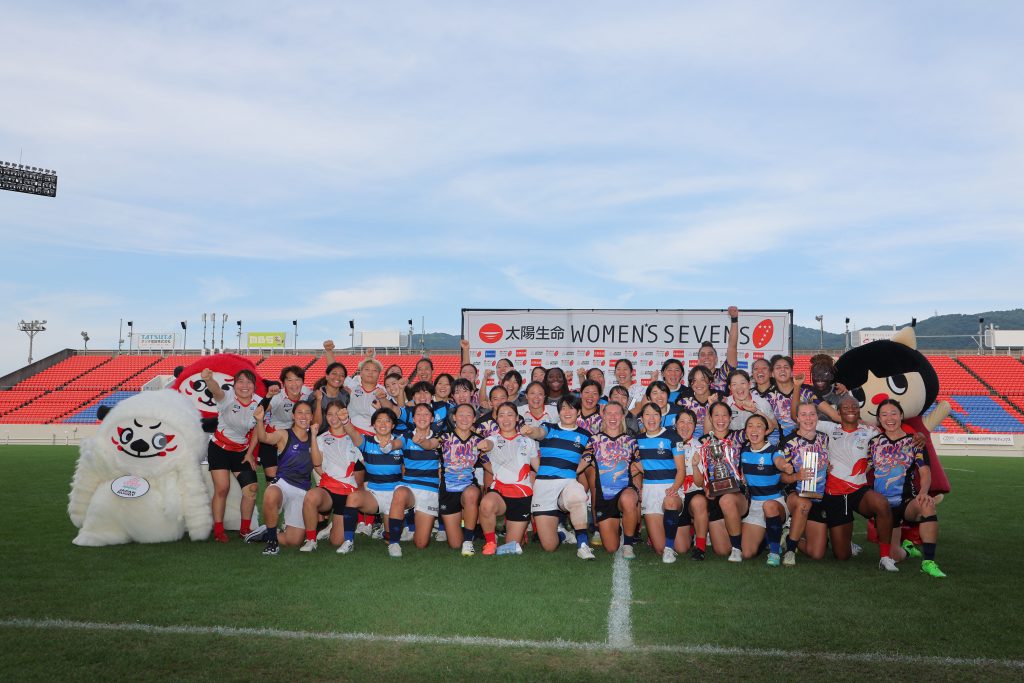
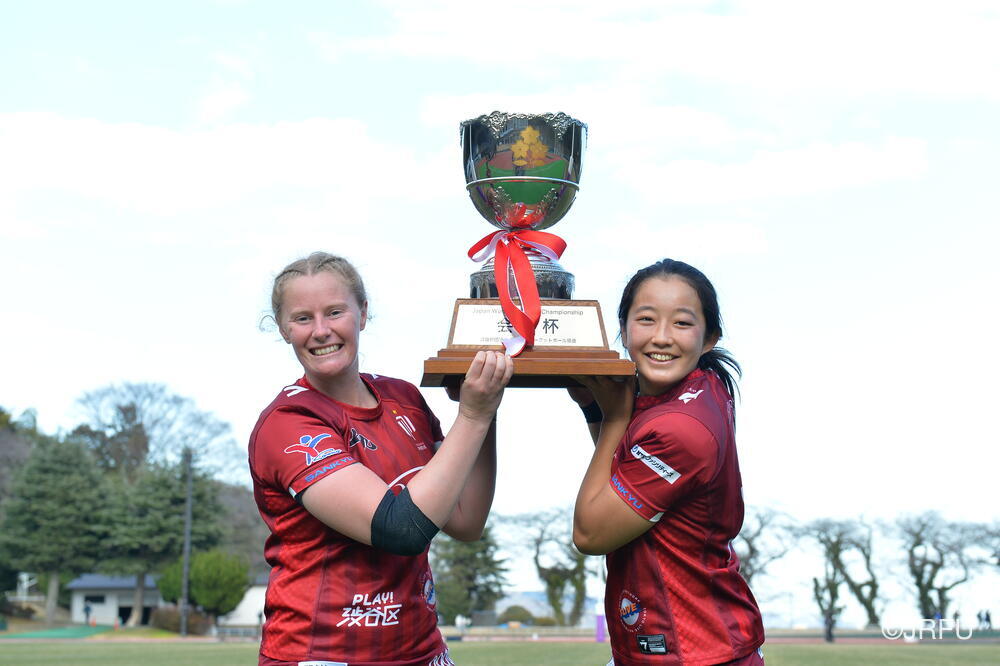
“In spite of this, we have seen great development from the Sakura Fifteen. They’re now regularly playing competitive test matches against top-10 teams which has been fundamental to their growth. In the past, we would secure two or three test matches a season against other Asian teams, however since 2021, the team has been playing regular tests in Japan and touring more extensively than we ever did in the past.”
However, there is still lots of room for improvement. In a recent interview, the Sakura Fifteen Head Coach, Lesley McKenzie stated that the domestic game in Japan doesn’t develop the lineout, attack, and defence skills to the level seen in countries with established elite club competitions. She went on to say that it’s an area that Japan lacks in women’s fifteens, and that it continues to be the Sakura Fifteen’s Achilles heel.
Commenting on this, Kagawa said, “The number of test matches we’re playing has increased, yet our player depth, particularly in the forwards has always been a challenge, especially in terms of the increased intensity of the matches we play. One possible solution in the short to medium-term is to send some of our promising young forwards to play with foreign clubs to give them the opportunity to play more regular fifteens games at a higher level than what they can currently experience in Japan.”
In addition to the development of player pathways, the strategic plan places great importance on the nurturing of the women’s rugby community in Japan and leadership development for Japanese players, across all levels of the sport. Commenting on these elements Kagawa continued, “As part of nurturing our community, we launched the Girl’s Rugby Channel on YouTube this year. I was dreaming of using YouTube to promote women’s rugby to audiences across Japan and so far, it’s been a great success.
“When I was the sevens national team manager, I wanted to show to the world how dedicated girls are to rugby, how hard they work and the sacrifices they make – but also the huge benefits they gain. There are also many former national team players who are fantastic role models for young girls, so I wanted to find a platform for them to tell their stories.
“I had lots of opportunities to tour foreign countries as the national team manager. This exposed me to how broad the world of rugby is and how important it is for Japanese players, coaches, officials and administrators to be a part of this and to make their contribution. International communication is really important, especially in terms of English language skills and leadership. Rugby can be such a powerful environment for building leadership and resilience in women and exposing them to a world far broader than they might experience without being involved in rugby.
“People often say that Japanese women play with a smile on their faces. Our girls are thankful for the support they get as it was such a struggle in the past for Japanese women to play rugby. The women who started rugby in Japan faced lots of hardships and barriers. So today our girls appreciate how hard it was for those who came before them, so they’re thankful and I feel they express that when they play.”

